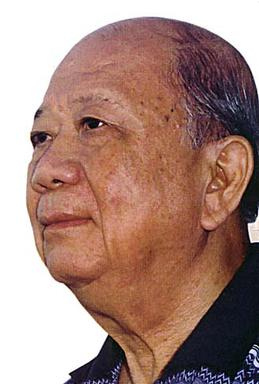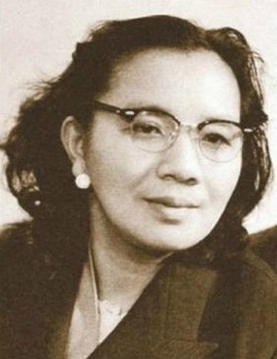Politics of Malaysia takes place in the framework of a federal representative democratic constitutional monarchy, in which the Yang di-Pertuan Agong is head of state and the Prime Minister of Malaysia is the head of government. Executive power is exercised by the federal government and the 13 state governments. Legislative power is vested in the federal parliament and the 13 state assemblies. The judiciary is independent of the executive and the legislature, though the executive maintains a certain level of influence in the appointment of judges to the courts.

Chin Peng, born Ong Boon Hua, was a Malayan communist politician, anti-fascist activist and long-time leader of the Malayan Communist Party (MCP) or officially the Communist Party of Malaya (CPM) and the Malayan National Liberation Army (MNLA).

The Malayan Communist Party (MCP), officially the Communist Party of Malaya (CPM), was a Marxist–Leninist and anti-imperialist communist party which was active in British Malaya and later, the modern states of Malaysia and Singapore from 1930 to 1989. It was responsible for the creation of both the Malayan Peoples' Anti-Japanese Army and the Malayan National Liberation Army.
Lai Teck was a leader of the Communist Party of Malaya and Malayan People's Anti-Japanese Army. A person of mixed Sino-Vietnamese descent, prior to his arrival in Malaya, Lai Teck was believed to have led his life as Truong Phuoc Dat until 1934, during which Dat disappeared and Lai Teck appeared.
This article lists important figures and events in Malayan public affairs during the year 1948, together with births and deaths of significant Malayans. Malaya left the British colonial Malayan Union; the Federation of Malaya took place on 1 February.

The Malayan National Liberation Army (MNLA), often mistranslated as the Tentera Pembebasan Kebangsaan Malaya, was a communist guerrilla army that fought for Malayan independence from the British Empire during the Malayan Emergency (1948–1960) and later fought against the Malaysian government in the Communist insurgency in Malaysia (1968–1989). Their central committee was a trade union activist known as Chin Peng who had previously been awarded an OBE by the British for waging a guerrilla war against the Japanese occupation of Malaya. Many MNLA fighters were former members of the Malayan Peoples' Anti-Japanese Army (MPAJA) which had been previously trained and funded by the British to fight against Japan during the Second World War.

Rashid Maidin, sometimes given as Rashid Mahideen, was a senior leader of the Communist Party of Malaya (CPM).

The Communist insurgency in Malaysia, also known as the Second Malayan Emergency, was an armed conflict which occurred in Malaysia from 1968 to 1989, between the Malayan Communist Party (MCP) and Malaysian federal security forces.

S.A. Ganapathy was a veteran of the communist underground resistance during Japanese occupation and postwar trade unionist in then Malaya. He was once the president of Malaya's largest trade union, the Pan Malayan Federation of Trade Unions (PMFTU).

Shamsiah Fakeh was a Malaysian nationalist and feminist. She was the leader of Angkatan Wanita Sedar (AWAS), Malaysia's first nationalist women organisation and a prominent Malay leader of the Communist Party of Malaya (CPM). She was the grandmother of Jamaliah Jamaluddin, Member of the Selangor State Executive Council (EXCO) and Member of the Selangor State Legislative Assembly (MLA) for Bandar Utama.

The Defenders of the Homeland was a volunteer army established on 3 October 1943 in the Dutch East Indies by the occupying Japanese. The Japanese intended PETA to assist their forces in opposing a possible invasion by the Allies. By the end of World War II, there were a total of 69 battalions in Java and Sumatra. On 17 August 1945, the day after the Proclamation of Indonesian Independence, the Japanese ordered the PETA daidan to surrender and hand over their weapons, which most of them did. Indonesia's inaugural President, Sukarno, supported the dissolution rather than turn the organisation into a national army as he feared allegations of collaboration had he allowed a Japanese-created militia to continue to exist.
Cik Dat bin Anjang Abdullah, commonly known as Abdullah CD, is a Malaysian former politician who served as chairman and General Secretary of the Communist Party of Malaya (CPM).

Apa Khabar Orang Kampung is a 2007 Malaysian documentary by Amir Muhammad. It was produced by Da Huang Pictures. Like its predecessor The Last Communist, it was banned in its home country but screened in several international film festivals. It premiered at the Berlinale in 2006.

Lee Meng, also romanised as Lee Min, was a Malaysian Chinese communist guerrilla and a leading member of the Communist Party of Malaya (CPM). She took part in guerrilla resistance against the Japanese occupation of Malaya as a member of the Malayan Peoples' Anti-Japanese Army (MPAJA) and later joined the Malayan National Liberation Army during the Malayan Emergency to fight against British rule in Malaya. She was described as one of the most capable members of the local communist movement, and was also the leader of the "Kepayang Gang" in Perak.
Suriani Abdullah was a former central committee member of the Communist Party of Malaya.

The Peace Agreement of Hat Yai (1989) marked the end of the Communist insurgency in Malaysia (1968–1989). It was signed and ratified by the Malayan Communist Party (MCP), and the Malaysian and Thailand governments at the Lee Gardens Hotel in Hat Yai, Thailand, on 2 December 1989.
P. Veerasenan was a notable labour unionist from Singapore. He was once the President of Standing Committee of Singapore General Labour Union (SGLU) as well as the vice-president of Singapore Federation of Trade Unions(SFTU). In his career, he befriended with S.A. Ganapathy, the former president of Pan Malayan Federation of Trade Unions (PMFTU), and Abdullah CD, chairman and currently General Secretary of the Communist Party of Malaya (CPM).
This article lists important figures and events in the public affairs of British Malaya during the year 1942, together with births and deaths of prominent Malayans. Malaya was occupied by Japanese forces at this time.

Parti Kebangsaan Melayu Malaya (PKMM), also known as the Malay Nationalist Party, was founded on 17 October 1945 in Ipoh, Perak. The party was the first Malay political party formed after the Japanese occupation of Malaya.













